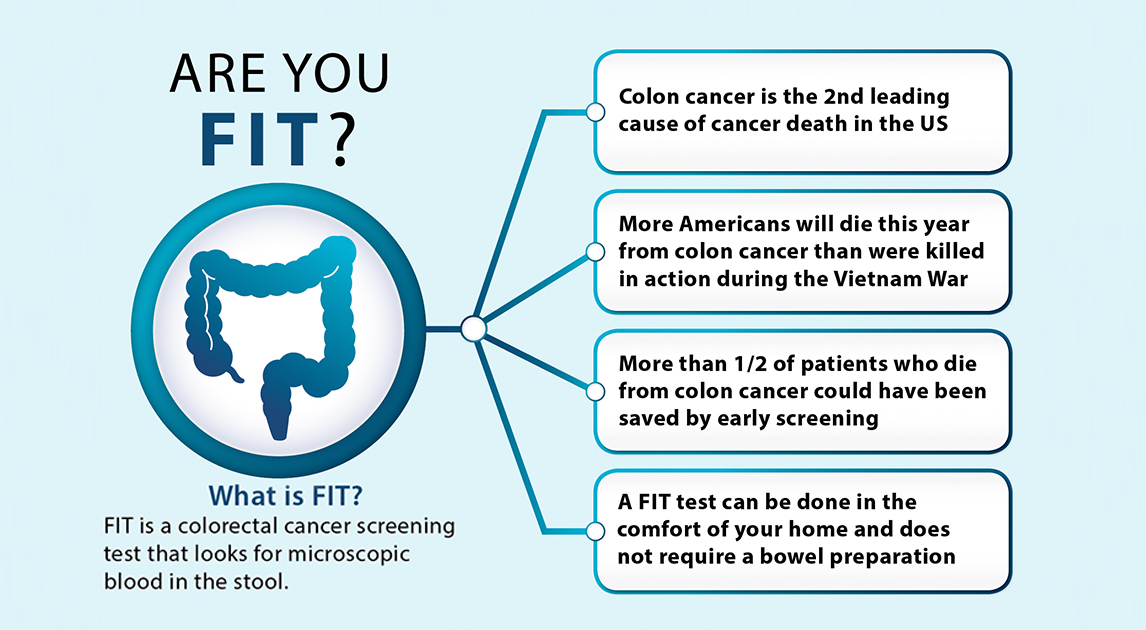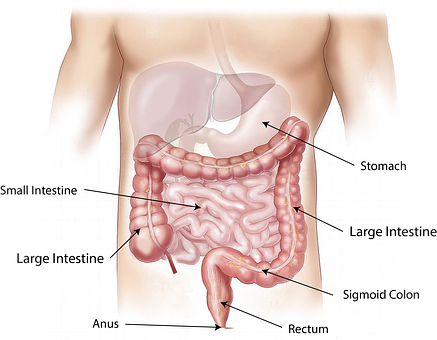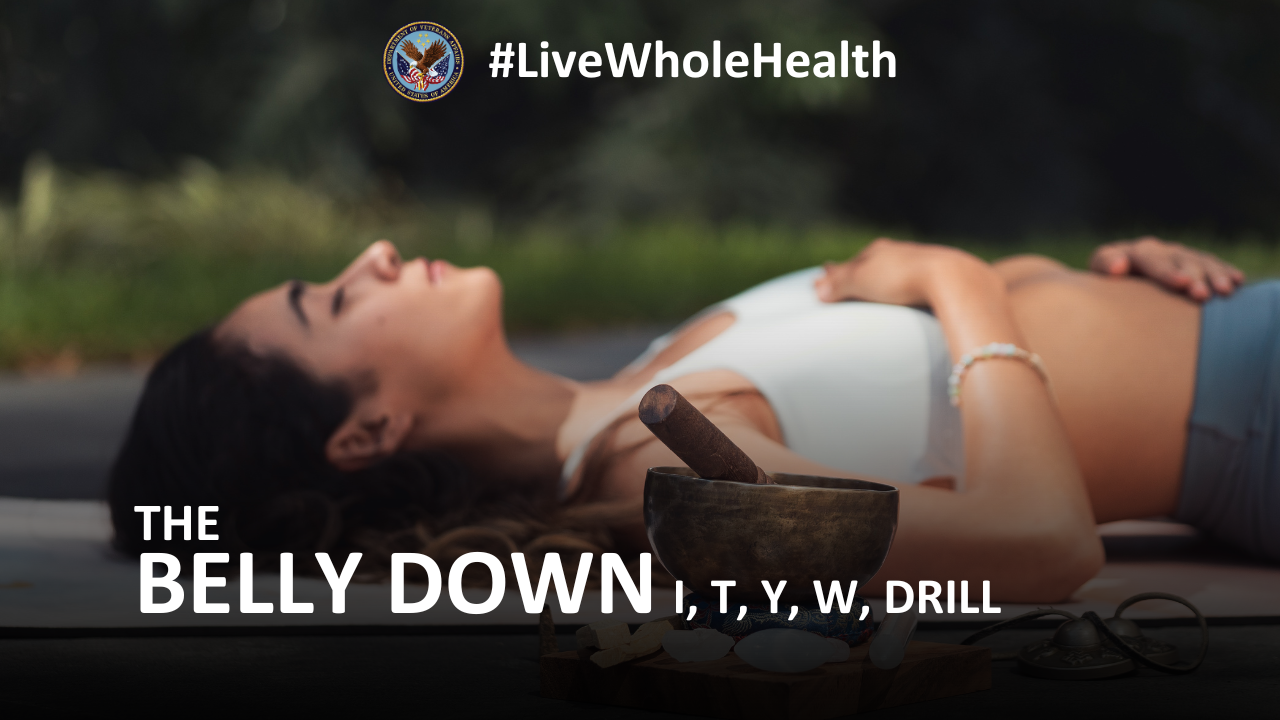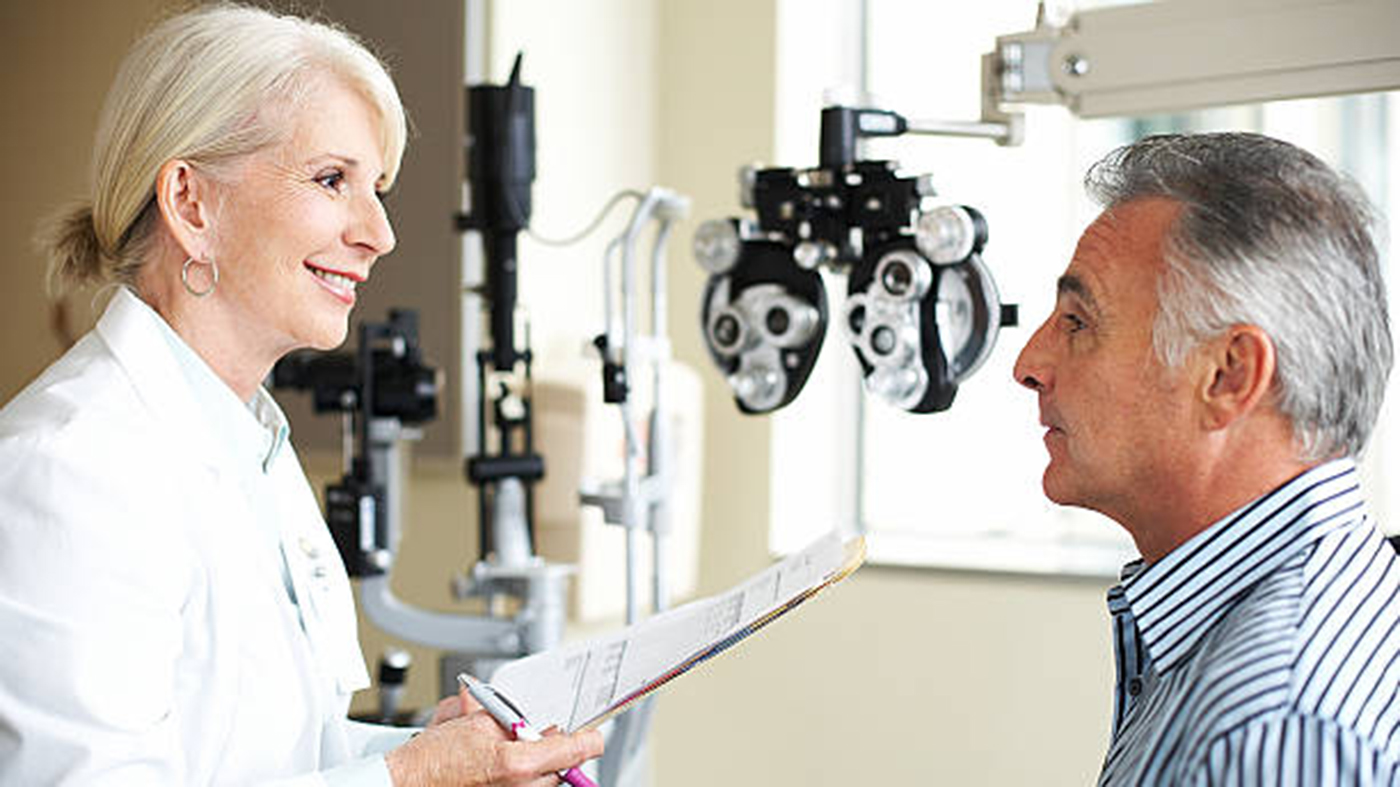Denise put off a screening colonoscopy for two years. When she finally did, she was diagnosed with rectal cancer.
“I was fortunate. My cancer was in the early stages and surgery offered me a cure. The prep was not that bad. The sedation made me wonder, ‘Is that all there is to it?’ The moral of my story is if I had waited until I had symptoms, it would have been too late.”
Colorectal cancer is the third most common cancer in the U.S. It is also the second leading cause of cancer deaths, behind lung cancer. The yearly death toll from colorectal cancer in America exceeds the total number of American combat deaths during the entire Vietnam War.
The Veterans Health Administration recommends screening for colorectal cancer in adults age 50 through 75.
The decision to screen for colorectal cancer in adults age 76 through 85 should be an individual one, taking into account the patient’s overall health and prior screening history.
Six out ten deaths could be prevented
In the past decade, colorectal cancer has emerged as one of the most preventable common cancers. If all men and women age 50 and older were screened regularly, six out of ten deaths from colorectal cancer could be prevented. Screening is typically recommended for all between the ages of 50 and 75 years. VA diagnoses some 4,000 new cases of the disease each year in Veterans.
Colorectal cancer is cancer of the colon or rectum. It’s as common in women as it is in men. Most colorectal cancers start as a growth called a polyp. If polyps are found and removed before they turn into cancer, many colorectal cancers can be prevented.
March is Colorectal Cancer Awareness Month: A perfect time for Veterans to get screened.
Questions? Here are the answers, including symptoms and how to prevent colon cancer.
Topics in this story
More Stories
Tight shoulders from desk work? Try this 3-minute yoga drill to loosen up and strengthen your back—no equipment needed—in this week's #LiveWholeHealth practice.
Learn how AMD and low vision impact you and what VA is doing to help improve your quality of life.
This podcast episode looks at how Veteran homelessness rates dropped to a record low in 2024 despite a national homelessness epidemic.









When I was 49 y/o, I had inquired with my VHA PCM about when I should start planning for the colonoscopy. She teased me stating that “you are the first person I have met that is looking forward to a colonoscopy…”. Embarrassed, I ended up going to a “caring and sensitive professional” in the private sector and got my colonoscopy procedure.
Multiple polyps were discovered and samples extracted for further tests. Though the polyps were determined to be benign, I was informed that I should have recurring tests every five years.
I hadn’t realized until then that I can receive accurate treatment (both medically and emotionally) from my private sector health care. I no longer use VHA for my non-service-connected disability visits. I found that “free healthcare” from the VHA places my livelihood at risk and I’d rather pay out-of-pocket for healthcare treatments that I have become to trust.
If you are at risk get the pre-screening, and if indicated, the colonoscopy. I did, a number of years ago (in the early nineties, by my physician) which indicated enlarged polyps, a follow-up x-ray seriwes, & done. In early 2007 a pre-screening indicated a series of x-rays and then a colonoscopy, which excised several polyps & biopsied as pre-cancerous. Currently (after almost 10 years) a ‘weather-eye’ is maintained looking for signs. Diet and lifestyle changes have been done.
Look alive, people. Talk with your caregivers and advocates. Signs can be found readily. There is no reason to not be agressive in outlook to taking medical action if it is warranted. DO NOT PUT YOUR HEAD IN THE SAND!
Thanks to the VA for their part.